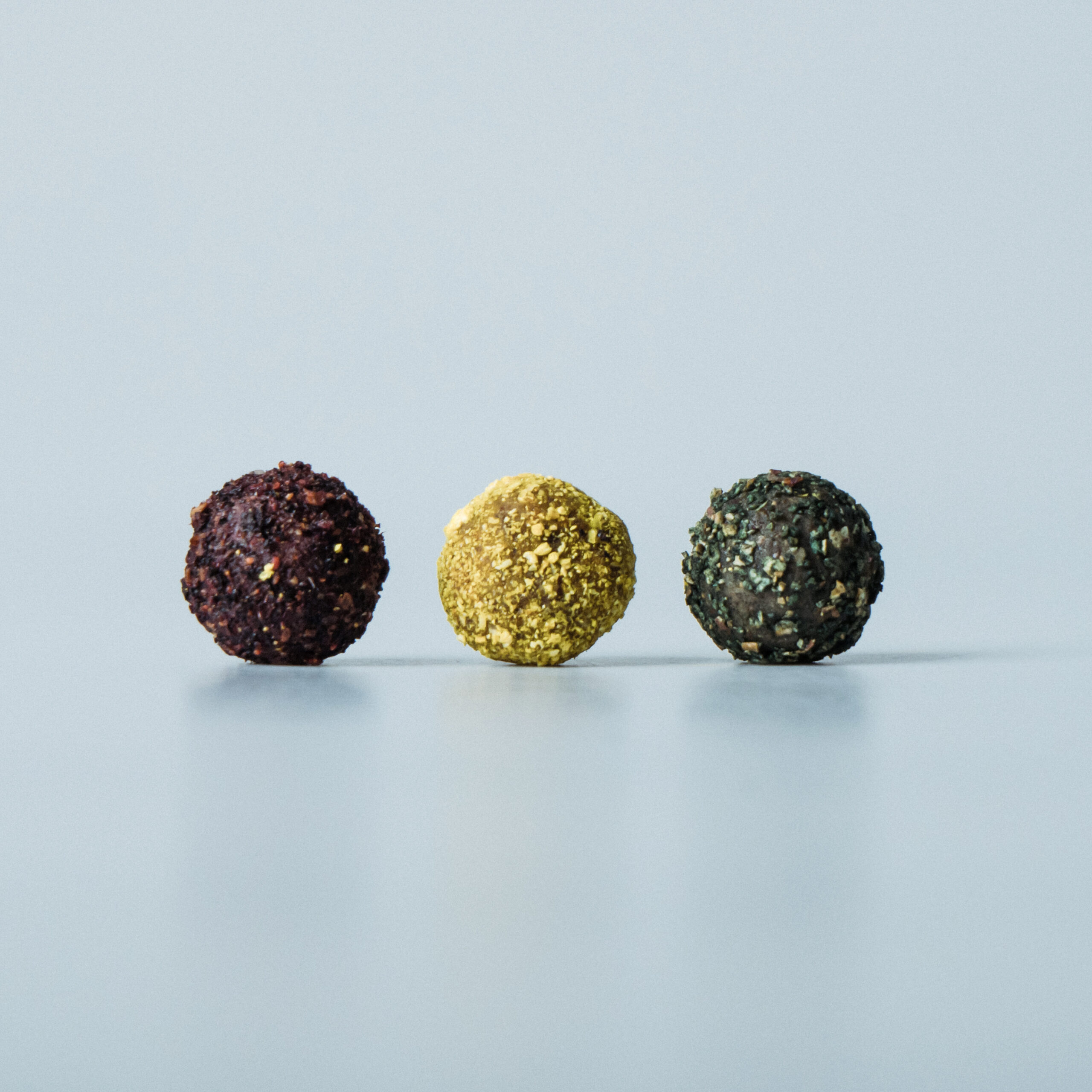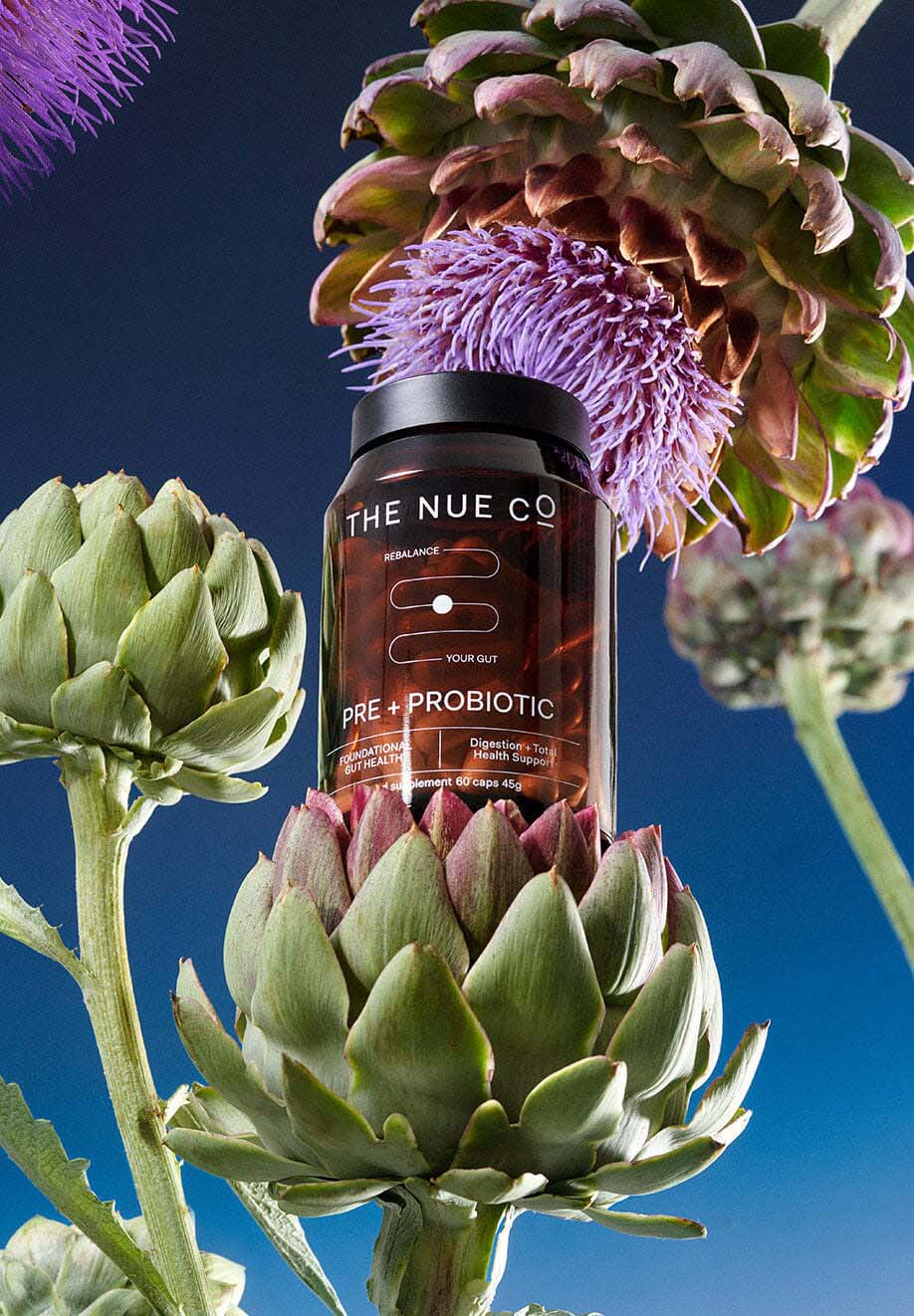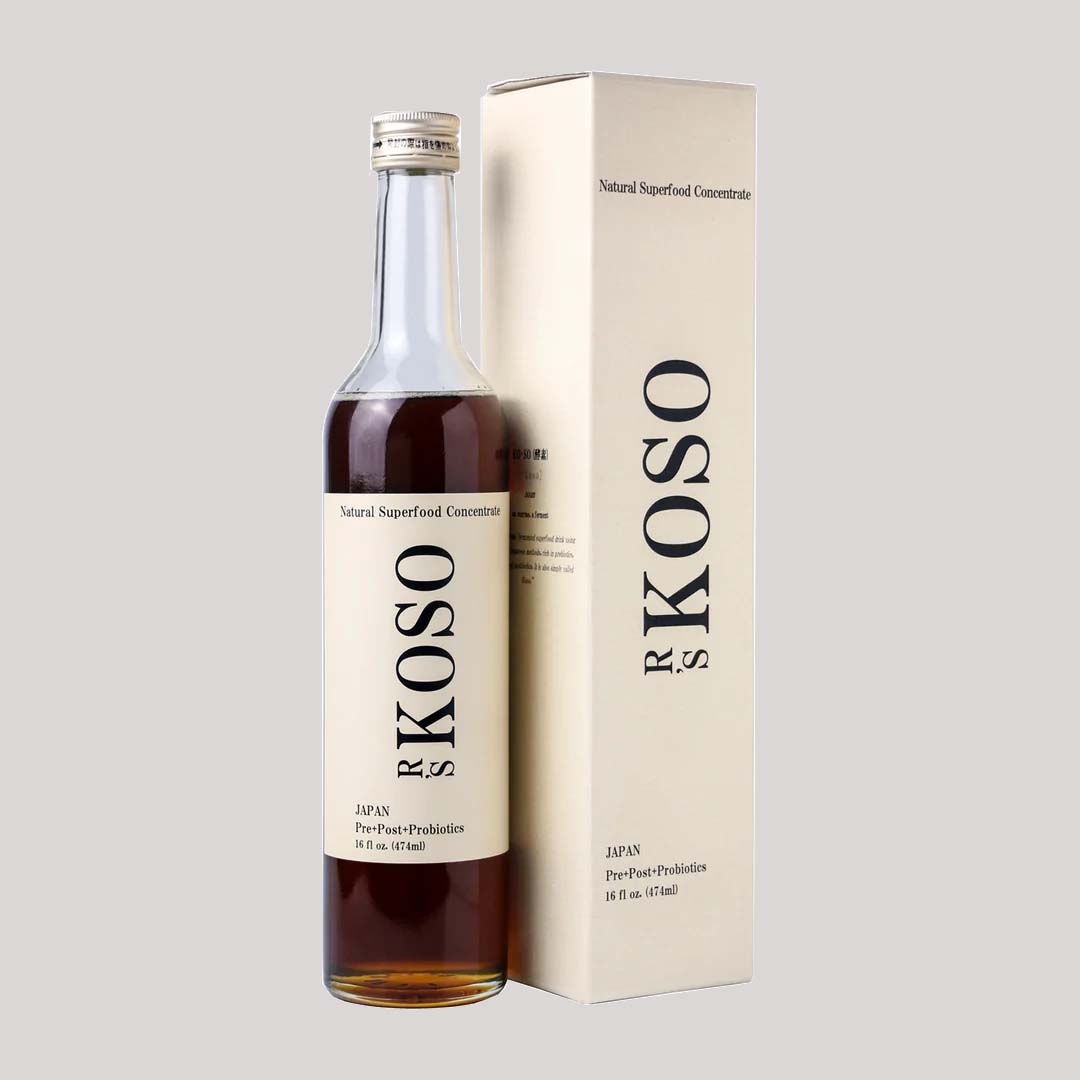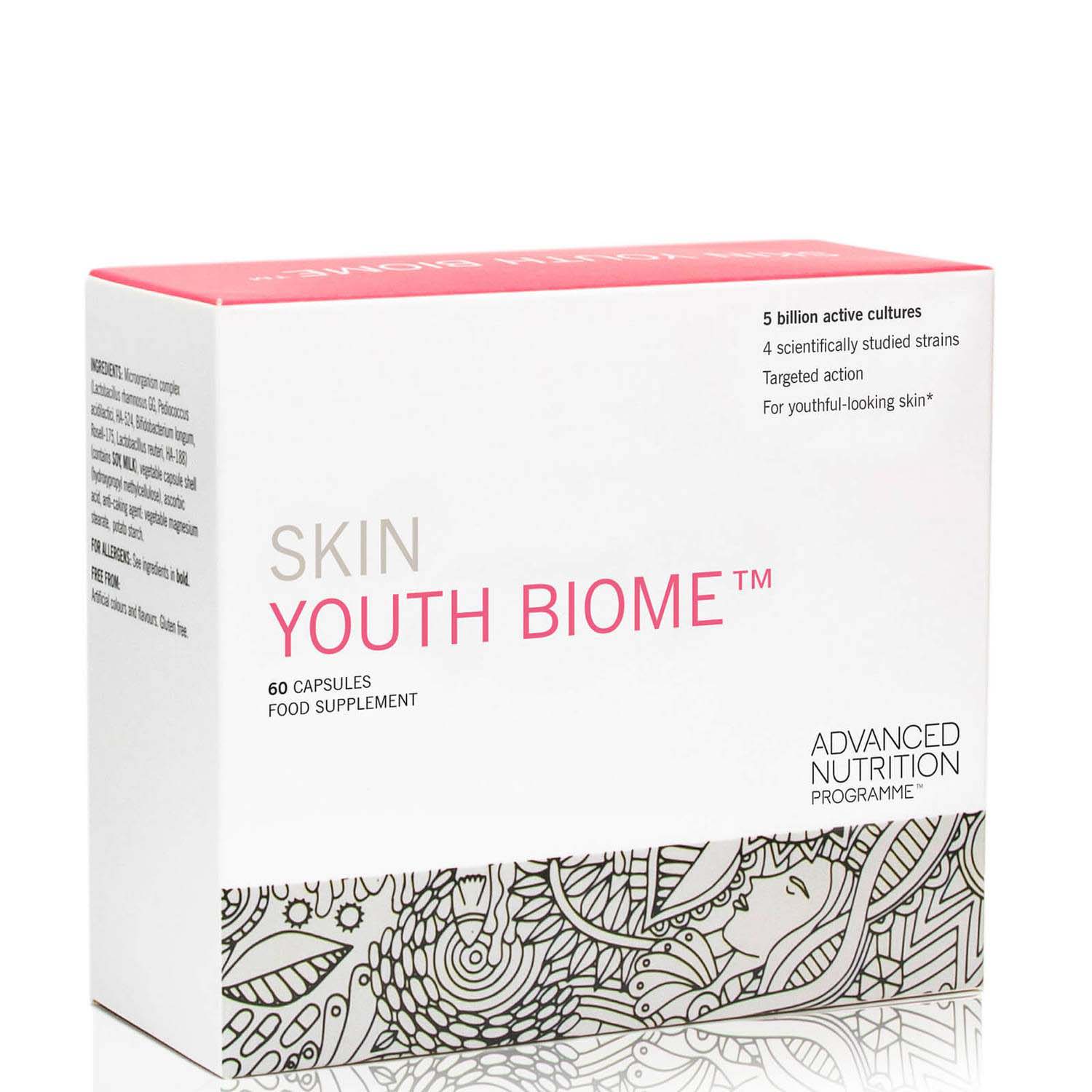
Gut health has had a lot of coverage over the past year and rightly so – a healthy gut is the cornerstone of a well-functioning digestive system, clearer skin, higher brain function, improved sleep, stronger hair and nails and, basically, everything you need to look and feel good.
So, to make things easy, we’ve created a definitive guide to gut health by asking three experts in different fields – acclaimed nutritionist Olga Hamilton; The Club by Bamford’s functional medicine practitioner Rose Ferguson; and Blok gyms’ trainer Rachel Lopez – to share their top tips.
In addition, we share our favourite products for an added gut-health boost.
How to improve gut health
1. Make sure there is diversity in the foods that you eat
Rachel Lopez, trainer: Thirty plants a week is just an example of a target you can work towards meeting. High-fibre, complex-carb plants are the best for your gut! It’s a lot easier than you think. These plants provide your gut with the fibres and polyphenols it needs to feed all the different microbes in your gut.
When it comes to meal planning, some of my clients find it difficult to meet this, so what I suggest starting with is:
– Authentic Greek yogurt (mixed with some whey protein if possible to boost the protein), then add in some nuts (almonds for example), seeds, chia seeds, blueberries and raspberries as a starting point.
– For lunches and dinners, boiling some sweet potatoes, edamame beans, green beans, kidney beans or broccoli is great for starters, alongside a protein source, like turkey, chicken or tuna.
2. Chew your food
Rose Ferguson, functional medicine practitioner: Your digestion starts in your mouth – so take time to appreciate each mouthful of whatever you are eating. Chewing gives your digestive enzymes and juices a chance to break the food down efficiently.
3. Combat stress by box breathing before eating
Olga Hamilton, nutritionist: When you’re stressed, you don’t digest well, because your body is producing cortisol, a hormone that makes your body prepared to either fight an enemy or to run away, with digestion becoming less of a priority. Cortisol will divert your blood away from your digestive organs, and send it to your muscles so you can fight better or run faster.
In order to switch your brain from stressed mode into rest and digest mode before you eat, you can do box breathing to reduce cortisol production immediately. First, you inhale and count to five very slowly. Then you pause, count to five. Then exhale, count to five. Pause again and without any breathing, counting to five. You need to do five breaths like this, and you will be switched into a rest-and-digest state.
4. Minimise processed foods
RL: Chemicals are damaging to your gut. All the additives and artificial sweeteners found in processed food are chronic stressors for your gut. I see these side effects in my clients through bloating and constipation.
5. Try circadian rhythm fasting
RL: I swear by circadian rhythm fasting, which means you time your meals in line with your body’s internal clock. I practise eating within an eight-hour window, but you can also do a 12-hour. If you see your stomach as almost like a dumping ground for food, you have to give that ground time to replenish and re-nourish itself. Allow it to process the food that it’s been given, digest and then flourish.
Personally, I eat as late as I can, so my first meal of the day doesn’t happen until 12 o’clock some days. This doesn’t mean I eat less, I just get all my meals in during a condensed amount of time. Eating a minimum of two hours before I sleep has improved the overall quality of my sleep. My digestion doesn’t keep me up late at night so the following day when I come to training, my muscles have fully recovered and got the rest they needed to heal and bring down any inflammation.
6. Take some probiotic supplements
RF: I recommend a course of probiotics every six months for maintenance. There are so many things that impact our gut in a negative way, including stress, pollution and pesticides, that giving the gut a helping hand a few times a year is not a bad thing. So every six months, complete a course of probiotics and the rest of the time get the fermented foods in [see below], which will support your unique bacterial colony.
7. Introduce fermented foods
RL: Even just a small portion of fermented foods will increase the microbiome in your gut. The best examples are kombucha, kimchi, kraut and kefir. My advice is to have these regularly as opposed to a large amount in one go. Your gut needs time to adapt, allowing time for these new probiotics to settle.
8. Try apple cider vinegar
RF: A shot of apple cider vinegar in a bit of water or a digestive enzyme before you eat can really help your digestion by increasing the digestive juices and enzymes that are needed to break down carbs, fat and protein.
9. Exercise
RL: Movement is great for your gut. What’s even better is moving outside, since sunlight and vitamin D will improve your health in every way. Try incorporating mindful walks into your week alongside your strength and resistance training. Prioritise sleep and recovery just as much as movement. We want to bring down chronic stress levels that impede your gut health.
Anything that encourages mindful movement is also helpful, like yoga, Pilates or swimming. These types of movement bring down levels of chronic stress within the body and focus on breath work – when the brain is calm the gut follows through.
The best products for a healthy gut
Haeckels gut-health programme

Speak to anyone that has tried Haeckels' gut-health programme and they will tell you that it was hard, sometimes really hard, but ultimately transformative and definitely worth it. Most significantly, they will say that long after the four week program ended they still incorporate the practices and recipes of the program into their everyday routine. Unlike many cleanses or ‘revitalising’ programs that encourage yo-yo dieting and offer only short-term results, this seems to be a programme that sticks.
The programme begins with a consultation during which a Haeckels nutritionist gets a sense of the patients' lifestyle and concerns to construct an individualised approach for improving skin, diet and habits. They are then presented with a range of meal plans, recipes, shopping lists, and lifestyle tips, all of which utilise the benefits of seaweed. Throughout the process patients have weekly check-ins with their nutritionist to ensure the program is working and adjust any aspects if necessary. Once finished, they are left with a revitalised microbiome and vast range of knowledge about their own gut and its unique needs.
The Nue Co’s Prebiotic + Probiotic supplement

The Nue Co has developed a cult following for its innovative wellness products (including functional fragrances, pre-, pro- and postbiotic skincare, and natural stress supplements), but its beginnings were as a supplement brand aimed at combating the effects of IBS.
The company’s original Prebiotic + Probiotic supplement is still one of its best products, taking the form of capsules containing 15 billion spores per dose to be taken every morning before food.
£45, available at cultbeauty.com
R’s Koso

R’s Koso is a superfood supplement based on a century-old traditional fermented drink made from vegetables, fruits, and plants. R’s edition is fermented for over a year and is made from a blend of more than 100 vegetables, fruits, plants, seaweeds and fungi. It is a natural, plant-based probiotic that is also rich in prebiotics and dietary fibre.
$99, rskoso.com
Dr Barbara Sturm’s Intermittent Fasting Supplement Set

Dr Barbara Sturm’s Intermittent Fasting Supplement Set has been designed in conjunction with functional health practitioner and author Dr Will Cole to help your body adjust to an intermittent fasting regime by supplying some of the nutrients and minerals you can lose in the process. Start the day with a teaspoon of powdered electrolytes mixed in water to rehydrate your body (even if you’re not fasting this is a good practice, since many of us wake up dehydrated and could use the extra electrolyte boost).
When you have your first meal (for many this is noon or 1pm), take the Omega-3 supplement, for increasing your metabolic rate, and the Vitamin, Trace Elements and Mineral Mix to supplement any nutrients you might be missing. Finish off with two magnesium capsules before bed to help with sleep.
£225, drsturm.com
Advance Nutrition’s Skin Youth Biome

Advance Nutrition’s Skin Youth Biome is game changing supplement that uses probiotics to improve your gut health and, consequently, improve your skin. Designed to be taken once a day, the Skin Youth Biome uses six skin-friendly bacteria and vitamin-C to address wrinkles, uneven skin tone, dullness, dryness and thinness. It might sound ambitious for a probiotic to do all of that, but believe it—this actually works.
£61, cultbeauty.com







